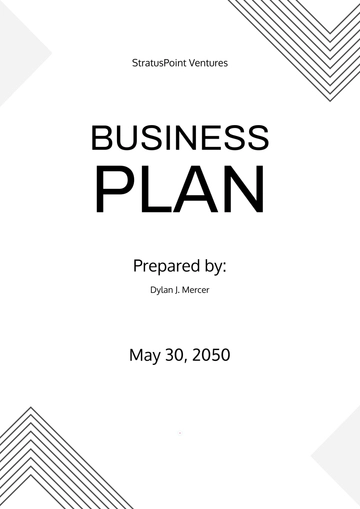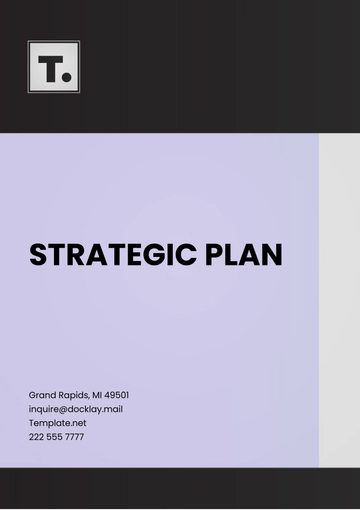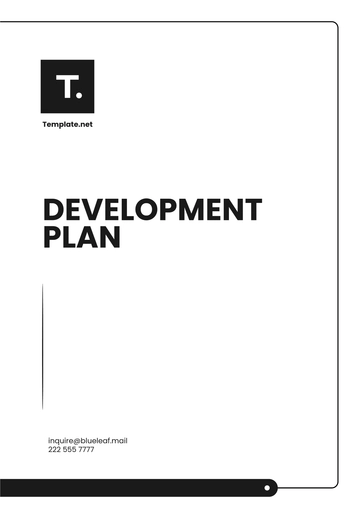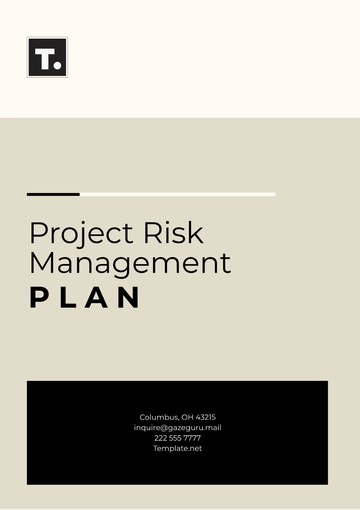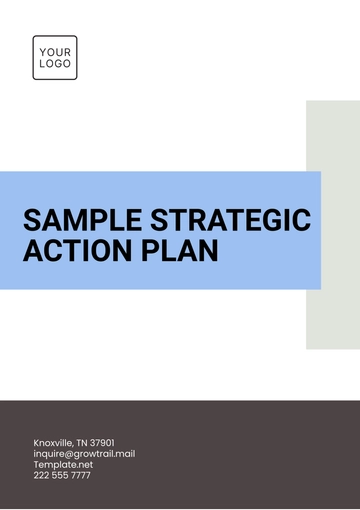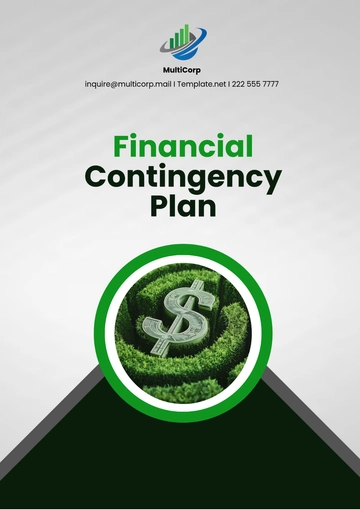Free Long-Term Account Management Plan
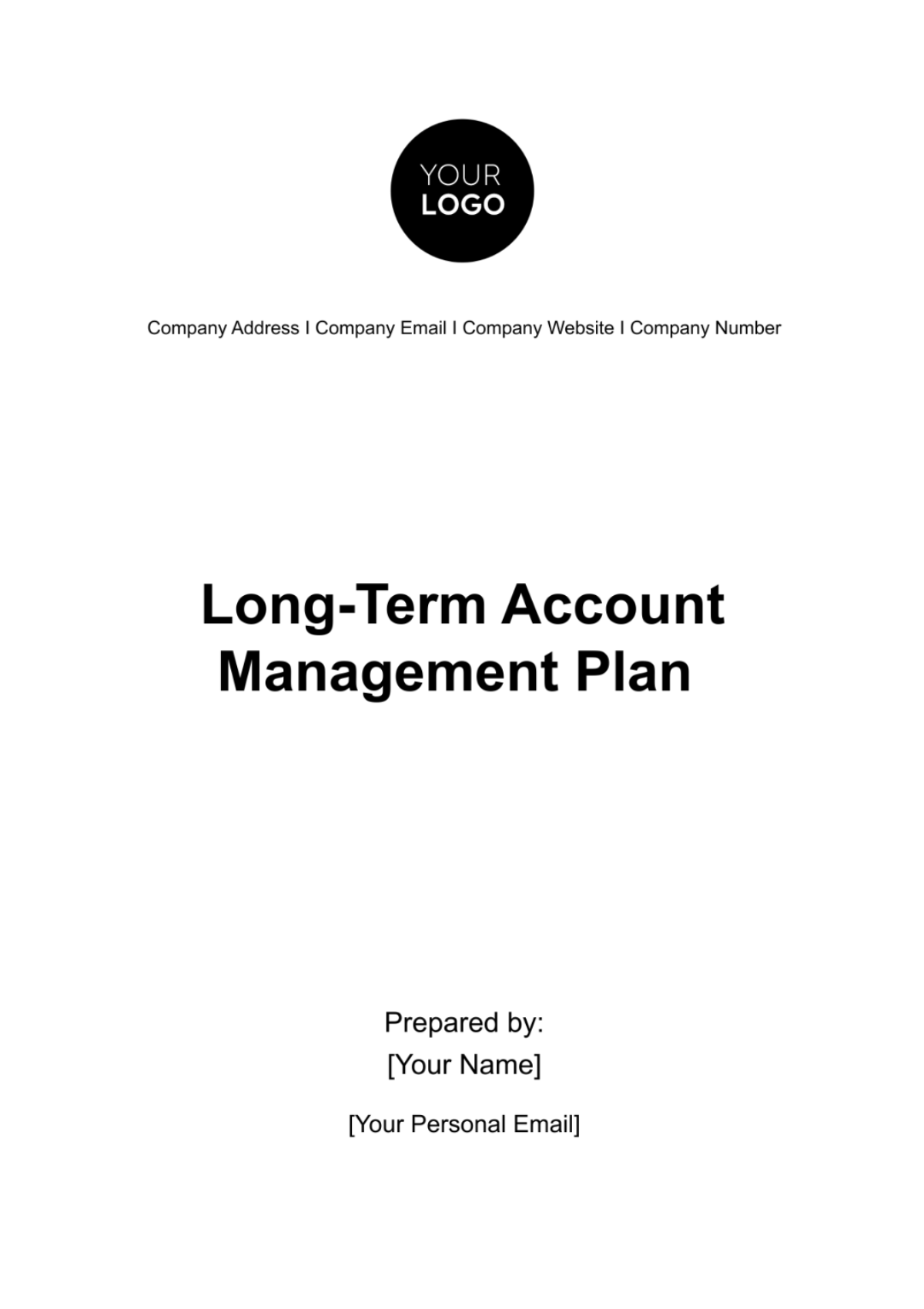
Executive Summary
[Company Name]'s Long-Term Account Management Plan serves as a comprehensive blueprint designed to strengthen and expand our client relationships over an extended period. This document details our strategic approach, focused on fostering enduring partnerships that contribute significantly to both customer satisfaction and the company's profitability. The plan is rooted in a deep understanding of the dynamic nature of client relationships and the importance of adapting to their evolving needs.
At the core of our strategy are several key principles: consistent and meaningful communication, a steadfast commitment to adding value, and the delivery of personalized service offerings. These principles are not merely theoretical; they are actionable guidelines that inform every interaction with our clients. Our goal is to go beyond the traditional vendor-client dynamic, positioning [Company Name] as a trusted advisor and an integral part of our clients' success stories.
Account Segmentation
One of the foundational elements of this plan is Account Segmentation. Recognizing that our clients have diverse needs, goals, and challenges, we have developed a segmentation strategy that categorizes clients into distinct groups. This categorization is based on various criteria such as revenue potential, sector specificity, geographical location, and the nature of services required. By understanding these segments, we can tailor our approach, ensuring that our services are not only relevant but also precisely aligned with each client's unique business context.
This segmentation enables us to employ a more focused and effective account management approach. High-revenue clients, for example, might require a different engagement strategy compared to those categorized under strategic importance or growth potential. By segmenting our clients, we ensure that our resources, efforts, and strategies are optimally allocated, leading to better service delivery, enhanced client satisfaction, and, ultimately, increased profitability for both our clients and our company.
Our Long-Term Account Management Plan is a testament to [Company Name]'s commitment to not just meeting, but exceeding client expectations. It reflects our understanding that the path to sustained business success lies in the strength of the relationships we build. This document serves as a guide for our team to nurture these relationships, drive client success, and secure [Company Name]'s position as a leader in customer-centric service delivery.
Segment | Criteria | Objective |
|---|---|---|
High Revenue | Clients with significant revenue potential | Focus on personalized solutions and regular engagement |
Strategic Importance | Clients vital for market positioning | Emphasize on collaborative projects and strategic alignment |
Growth Potential | Clients with prospects for expansion | Offer scalable solutions and innovation |
Service-Specific | Clients requiring specialized services | Provide expert solutions and dedicated support |
Role of Account Managers
The Role of Account Managers within [Company Name] is pivotal in building and nurturing client relationships. These professionals are more than just intermediaries; they are the architects of customer satisfaction and the catalysts for business growth. Their responsibilities encompass a broad range of activities, all aimed at ensuring the highest level of client service and satisfaction.
Ensuring Customer Satisfaction and Identifying Growth Opportunities: Account Managers are tasked with the critical role of ensuring that each client's experience with [Company Name] is not just satisfactory, but exceptional. They are responsible for understanding the client's business goals, challenges, and expectations. This understanding enables them to tailor our services effectively, ensuring that we not only meet but exceed client expectations. Additionally, they are always on the lookout for growth opportunities within client accounts, identifying areas where our services can further support the client's objectives.
Regular Communication with Clients: Consistent and effective communication is the cornerstone of any successful relationship. Account Managers regularly engage with clients to keep them updated, solicit feedback, and address any concerns promptly. This ongoing dialogue ensures that we are in tune with our clients' evolving needs and preferences and can adjust our strategies and solutions accordingly.
Problem-Solving and Promotion of Products/Services: Account Managers are adept at problem-solving and are always prepared to address and resolve any issues that may arise. Their deep understanding of our product and service portfolio enables them to identify and suggest the best solutions to clients, ensuring that any problem is not just solved, but turned into an opportunity for enhancing the client relationship.
Comprehensive Communication Strategy
The Comprehensive Communication Strategy at [Company Name] is designed to build and sustain strong, enduring client relationships. This strategy is structured to ensure regular and meaningful interactions with clients, allowing for continuous monitoring and improvement of our service quality.
Monthly Client Check-Ins: These are regular touchpoints where Account Managers update clients on progress, discuss ongoing projects, and gather feedback. This frequent engagement helps in maintaining transparency and building trust.
Quarterly Issue Resolution Sessions: Held every quarter, these sessions focus on addressing and resolving any specific issues clients might be facing. These dedicated sessions demonstrate our commitment to resolving client concerns proactively.
Bi-Annual Feedback Loops: These involve a comprehensive collection and analysis of client feedback. Conducted twice a year, these feedback loops are crucial for assessing overall client satisfaction and identifying areas for improvement.
This structured communication approach ensures that we are consistently engaged with our clients, enabling us to adapt our services and strategies to meet their evolving needs.
Upselling and Cross-Selling Strategy
The Upselling and Cross-Selling Strategy at [Company Name] is a systematic approach aimed at deepening client relationships and enhancing business growth. This strategy is centered around three key elements:
Understanding Each Client's Business Intimately: Account Managers invest time and resources to gain an in-depth understanding of each client’s business, industry trends, and competitive landscape. This knowledge is crucial for identifying opportunities where our products or services can add value to the client.
Proactive Recommendations: Armed with insights into the client's business, Account Managers are well-positioned to proactively recommend additional services or products. These recommendations are tailored to each client's specific needs and challenges, ensuring that they are relevant and add tangible value.
Aligning Offerings with Client's Evolving Needs: Our business environment is dynamic, and so are our clients' needs. Account Managers continuously align our offerings with these changing needs, ensuring that our solutions evolve alongside our clients' businesses.
This strategy not only contributes to the growth of [Company Name] but also reinforces our position as a trusted and valuable partner in our clients’ success. Through these strategies, we aim to not only maintain but enhance our client relationships, ensuring long-term success for both our clients and our company.
Client Feedback and Satisfaction Measurement
Client feedback and satisfaction measurement is a critical component of [Company Name]'s approach to account management. Our methodical approach in this area is threefold:
Regular Client Surveys for Direct Feedback:
Design and Implementation: We design comprehensive surveys to capture the client's experience with our services. These surveys are conducted regularly to ensure we have up-to-date feedback.
Diverse Feedback Channels: Besides surveys, we use various channels like online platforms, face-to-face meetings, and telephone calls to gather feedback, ensuring we reach all clients in their preferred mode of communication.
Questionnaire Tailoring: The questions in our surveys are tailored to elicit specific, actionable feedback, rather than generic responses.
Analyzing Customer Feedback to Identify Areas of Improvement:
Feedback Analysis: All client feedback is systematically analyzed to identify common themes, specific issues, and areas for improvement.
Actionable Insights: Our team focuses on converting feedback into actionable insights. This involves understanding the root causes of any issues and recognizing patterns that might indicate systemic problems.
Continuous Monitoring: We continuously monitor feedback trends over time to assess the effectiveness of our solutions and to identify any emerging issues early.
Implementing Changes Based on Client Suggestions and Market Trends:
Responsive Changes: We are committed to implementing changes swiftly in response to client feedback. This may involve adjusting our service approach, enhancing our product offerings, or improving our communication methods.
Market Trend Integration: Alongside client feedback, we also integrate market trends into our strategy to ensure that our offerings remain competitive and relevant.
Feedback Loop Closure: We close the feedback loop by informing clients about the changes made in response to their suggestions, reinforcing our commitment to their satisfaction.
Renewal Strategy
Our renewal strategy is designed to maximize client retention by:
Demonstrating Ongoing Value to Encourage Contract Continuation:
Value Communication: We regularly communicate the value delivered to clients, using metrics and success stories to demonstrate the tangible benefits of our partnership.
ROI Demonstrations: Our account managers provide clients with clear evidence of the return on investment (ROI) they receive from our services or products.
Maintaining High Levels of Customer Satisfaction:
Consistent Quality Service: We ensure consistent delivery of high-quality services and products to maintain and improve customer satisfaction.
Personalized Attention: Our account managers offer personalized attention to each client, ensuring that their unique needs and preferences are met.
Regularly Reviewing and Adjusting Our Offerings:
Adaptive Offerings: We regularly review and adjust our offerings to ensure they align with evolving client needs and market conditions.
Client Involvement: Clients are involved in the review process, allowing them to contribute to the evolution of the services or products they receive.
Data-Driven Decision Making
Data-driven decision-making is at the heart of our account management approach:
Monitor Client Engagement and Satisfaction:
Engagement Metrics: We use various metrics to monitor client engagement, such as frequency of interactions, usage patterns, and service uptake.
Satisfaction Tracking: Client satisfaction is continuously tracked through feedback scores, retention rates, and client testimonials.
Identify and Address Potential Issues Early:
Predictive Analytics: By leveraging predictive analytics, we can identify potential issues before they escalate, allowing for preemptive action.
Real-Time Alerts: Our systems are designed to provide real-time alerts for any anomalies in client engagement or satisfaction metrics.
Inform and Refine Future Account Management Strategies:
Trend Analysis: We analyze long-term data trends to inform our strategic decisions, ensuring that our approach remains aligned with client needs and market dynamics.
Customized Strategies: Data insights allow us to create customized strategies for different client segments, enhancing the effectiveness of our account management.
In summary, [Company Name]'s approach to client feedback and satisfaction measurement, renewal strategy, and data-driven decision-making is comprehensive, client-centric, and continually evolving. These strategies are integral to maintaining robust client relationships, driving business growth, and positioning [Company Name] as a leader in customer-centric service delivery.
Competency Development
In the fast-paced and ever-evolving business environment, competency development is not just a beneficial strategy, but a necessity for maintaining a competitive edge. At [Company Name], we recognize the importance of continuous learning for our Account Managers. Our competency development program is comprehensive, covering various aspects:
Regular Training on Industry Trends and Client Business Models:
Industry-Specific Training: Our Account Managers undergo regular training sessions focused on current and emerging industry trends. This enables them to stay ahead of market changes and better understand the challenges and opportunities faced by our clients.
Client-Centric Approach: Training also includes in-depth studies of client business models. This equips our Account Managers with the knowledge to offer tailored solutions and advice, enhancing our value proposition to clients.
Access to Resources for Improving Product/Service Knowledge:
Product Knowledge: Account Managers have access to extensive resources to deepen their understanding of our products and services. This includes detailed product manuals, case studies, and access to internal experts.
E-Learning Platforms: We leverage advanced e-learning platforms that provide interactive and up-to-date content on our offerings, ensuring our team is always equipped with the latest information.
Opportunities for Professional Development:
Personalized Development Plans: Each Account Manager has a personalized professional development plan, which includes goals for skill enhancement and career advancement.
Mentorship Programs: We have established mentorship programs where experienced professionals within the company guide and support the growth of our Account Managers.
External Workshops and Seminars: Participation in external workshops, seminars, and industry conferences is encouraged and often sponsored, providing our team with exposure to diverse perspectives and best practices.
Contingency Planning
Contingency planning is an integral part of [Company Name]'s strategy to ensure resilience and agility in the face of unforeseen challenges. Our contingency plan is designed to mitigate risks and maintain the integrity of our client relationships during crises:
Strategies for Managing Client Conflicts and Disputes:
Conflict Resolution Protocols: We have established clear protocols for resolving client conflicts and disputes. This includes a step-by-step escalation process, ensuring issues are addressed promptly and effectively.
Training in Conflict Management: Account Managers are trained in conflict resolution and negotiation techniques, equipping them with the skills to handle challenging situations diplomatically.
Adaptation to Unexpected Business Changes:
Flexible Business Models: Our business model is designed to be flexible, allowing us to adapt quickly to unexpected changes in the market or client requirements.
Scenario Planning: Regular scenario planning exercises are conducted to prepare for various business contingencies, ensuring we can maintain operations and service delivery under different circumstances.
Maintaining Client Trust and Relationship Integrity During Crises:
Transparent Communication: In times of crisis, we prioritize transparent and timely communication with our clients, keeping them informed about how the situation might affect our services and what measures we are taking.
Reassurance and Support: We focus on providing reassurance and support to our clients, reinforcing the trust and reliability they have in [Company Name].
This Long-Term Account Management Plan, including its components of Competency Development and Contingency Planning, is a dynamic document. It will be reviewed and updated annually to reflect the latest in business environments and client needs, ensuring that [Company Name] continues to deliver exceptional service and builds lasting client relationships.
- 100% Customizable, free editor
- Access 1 Million+ Templates, photo’s & graphics
- Download or share as a template
- Click and replace photos, graphics, text, backgrounds
- Resize, crop, AI write & more
- Access advanced editor
Presenting Template.net's Long-Term Account Management Plan Template – your solution for optimizing client relationships! This versatile template, fully customizable through our AI editor tool, empowers your business with a comprehensive plan for nurturing long-lasting partnerships. Crafted by experts in technical writing, it includes sections for agreements, contracts, and more, ensuring your account management is efficient and effective.
You may also like
- Finance Plan
- Construction Plan
- Sales Plan
- Development Plan
- Career Plan
- Budget Plan
- HR Plan
- Education Plan
- Transition Plan
- Work Plan
- Training Plan
- Communication Plan
- Operation Plan
- Health And Safety Plan
- Strategy Plan
- Professional Development Plan
- Advertising Plan
- Risk Management Plan
- Restaurant Plan
- School Plan
- Nursing Home Patient Care Plan
- Nursing Care Plan
- Plan Event
- Startup Plan
- Social Media Plan
- Staffing Plan
- Annual Plan
- Content Plan
- Payment Plan
- Implementation Plan
- Hotel Plan
- Workout Plan
- Accounting Plan
- Campaign Plan
- Essay Plan
- 30 60 90 Day Plan
- Research Plan
- Recruitment Plan
- 90 Day Plan
- Quarterly Plan
- Emergency Plan
- 5 Year Plan
- Gym Plan
- Personal Plan
- IT and Software Plan
- Treatment Plan
- Real Estate Plan
- Law Firm Plan
- Healthcare Plan
- Improvement Plan
- Media Plan
- 5 Year Business Plan
- Learning Plan
- Marketing Campaign Plan
- Travel Agency Plan
- Cleaning Services Plan
- Interior Design Plan
- Performance Plan
- PR Plan
- Birth Plan
- Life Plan
- SEO Plan
- Disaster Recovery Plan
- Continuity Plan
- Launch Plan
- Legal Plan
- Behavior Plan
- Performance Improvement Plan
- Salon Plan
- Security Plan
- Security Management Plan
- Employee Development Plan
- Quality Plan
- Service Improvement Plan
- Growth Plan
- Incident Response Plan
- Basketball Plan
- Emergency Action Plan
- Product Launch Plan
- Spa Plan
- Employee Training Plan
- Data Analysis Plan
- Employee Action Plan
- Territory Plan
- Audit Plan
- Classroom Plan
- Activity Plan
- Parenting Plan
- Care Plan
- Project Execution Plan
- Exercise Plan
- Internship Plan
- Software Development Plan
- Continuous Improvement Plan
- Leave Plan
- 90 Day Sales Plan
- Advertising Agency Plan
- Employee Transition Plan
- Smart Action Plan
- Workplace Safety Plan
- Behavior Change Plan
- Contingency Plan
- Continuity of Operations Plan
- Health Plan
- Quality Control Plan
- Self Plan
- Sports Development Plan
- Change Management Plan
- Ecommerce Plan
- Personal Financial Plan
- Process Improvement Plan
- 30-60-90 Day Sales Plan
- Crisis Management Plan
- Engagement Plan
- Execution Plan
- Pandemic Plan
- Quality Assurance Plan
- Service Continuity Plan
- Agile Project Plan
- Fundraising Plan
- Job Transition Plan
- Asset Maintenance Plan
- Maintenance Plan
- Software Test Plan
- Staff Training and Development Plan
- 3 Year Plan
- Brand Activation Plan
- Release Plan
- Resource Plan
- Risk Mitigation Plan
- Teacher Plan
- 30 60 90 Day Plan for New Manager
- Food Safety Plan
- Food Truck Plan
- Hiring Plan
- Quality Management Plan
- Wellness Plan
- Behavior Intervention Plan
- Bonus Plan
- Investment Plan
- Maternity Leave Plan
- Pandemic Response Plan
- Succession Planning
- Coaching Plan
- Configuration Management Plan
- Remote Work Plan
- Self Care Plan
- Teaching Plan
- 100-Day Plan
- HACCP Plan
- Student Plan
- Sustainability Plan
- 30 60 90 Day Plan for Interview
- Access Plan
- Site Specific Safety Plan


